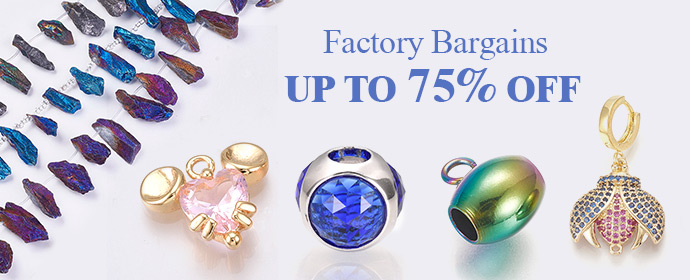Introduction to a Japanese Tattoo
A Japanese tattoo, known as “irezumi”, has a long history and symbolic meaning. Rather than being mere decoration, every image used in these tattoos has a specific purpose and significance. Japanese tattooing traditions originate from woodblock prints and ukiyo-e art during the Edo period. The intricate designs are rich with representations of folklore, nature, gods, dragons, warriors, flowers, and more. Those getting Japanese-style tattoo art incorporate these meaningful images for cultural heritage, self-expression, spiritual guidance, symbols of change, and the sheer beauty of the craftsmanship.

Meaningful Japanese Tattoo Motifs & Images
From fearsome guardians to tranquil natural scenery, traditional Japanese tattoo art comprises countless meaningful images and symbols to inspire ideas. Consider some of the most popular Japanese tattoo ideas:
Japanese Tattoo Ideas – Dragons
One of the most iconic figures is the dragon. These mythical creatures represent strength, wisdom, change, and protecting those who are righteous. Dragon tattoos come in many forms including winding serpents spiraling over the body or coiling around over arms or legs. Dragons may be designed to confront enemies like tigers and snakes or interact with clouds, waves, pearls, or flames. Colors hold significance too – black symbolizes experience and wisdom while gold indicates prosperity.
Warriors & Heroes
Japanese tattoo ideas featuring valiant warriors and heroes illustrate courage in the face of adversity. These tattoos may present human samurai engaged in battle denoting the struggles we must face in life. Others show supernatural beings like the monstrous demon leader, Raijin, the god of lightning, thunder, and storms. His fierce power is meant to inspire awe.
Japanese Tattoo Ideas – Koi Fish
Another common tattoo concept from Japanese iconography is the koi fish. In Eastern culture, this species represents strength and determination to achieve goals because koi are known to persistently swim upstream no matter the obstacles. Those with koi tattoos aim to internalize this unrelenting perseverance in their own lives. Artists may create koi ponds spanning over the chest, arms, or back with the fish inked in vivid red and black or in bright bursting colors signifying conquering adversity.
Floral Motifs
Japanese tattoo art incorporates abundant beautiful botanical elements like flowering lotuses, vibrant peonies, gentle cherry blossoms, and elegant chrysanthemums. These pay tribute to the fleeting yet stunning existence of nature’s flora as metaphors for our mortality. Flowers hold deep meaning regarding life’s impermanence but also growth and optimism. Bright crimson peonies represent honor and prosperity while sakura cherry blossoms epitomize the delicate beauty inherent to short-lived splendor. Lotus flowers denote rising above difficulties by blooming triumphantly even from muddy waters. Chrysanthemums signify nobility and fidelity.
Spiritual Images

Since irezumi has origins in spiritual and mystic customs, incorporating religious Eastern imagery allows one to honor one’s faith. Buddha figures promote inner enlightenment and peace. Intricate yin yang symbols recognize the cyclical balance between opposing forces in life. Serene mountainscapes reflect spiritual harmony with nature’s grandeur. Gong Gong, the Chinese water god, represents power and resilience while Fujin, shown carrying windbags, focuses on grace and liberation. Phoenix’s rise from the flames symbolizes rebirth and overcoming tremendous loss or difficult transformations.
Japanese Tattoo Ideas – Hannya & Oni Masks
Hannya and oni masks stemming from Japanese Noh theater offer an intimidating tattoo choice representing scary supernatural beings and vengeful spirits. But their horrifying appearance traditionally demonstrated a warning about allowing negative emotions like jealousy and anger to transform someone internally ugly. Those donning these as tattoos aim to keep themselves in check morally to avoid turning into metaphorical demons.
Japanese Tattoo Ideas for Women
While these tattoos were historically worn by men, modern women proudly sport this artwork too! Feminine iterations focus more on flowers versus fierce figures. Colorful botanical bodysuits extending over shoulders, torso, thighs, and arms prove increasingly popular. Flowers like peonies, lotus, and cherry blossoms hold female energy in Eastern culture. Their elegantly striking appearance makes a statement about harnessing ephemeral beauty and grace each day. Hip and thigh placements rock!
Smaller feminine Japanese tattoo ideas better suit delicate areas like ankles, wrists, or behind the ears. Single branches with sakura or momo peach flowers extend gracefully. Abstract swirling waves or clouds work beautifully. Geisha figure profiles celebrating feminine allure and strength are also a trend for ladies.
Japanese Tattoo Ideas for Men
Guys gravitate toward traditional Japanese tattoos featuring warrior motifs and masculine strength. Full bodysuits boasting sleeves and chest panels with elaborate detailing and vibrant old-school coloring look striking. Snake and dragon imagery always delivers bold impact, especially when designed as forearm sleeve wraps slithering down toward hands.
For concentrated Japanese tattoo ideas, focus on just an eye-catching back piece like Raijin the raging god of thunder preparing to unleash stormy destruction. His intense facial expression and dynamic posture as lightning bolts emerge ominously from behind truly pops. Hannya demon masks placed between shoulder blades also make that misbehaving devil an ever-present watchdog keeping behavior in check!
Smaller tattoos carrying symbolic meaning work excellently for men too. Inner forearm inking provides ideal visibility on muscle but allows versatility to conceal professionally if ever needed. Japanese tattoo ideas like arrows denoting moving forward through struggles or illustrated proverbs about strength and wisdom contained in compact idioms work brilliantly.
Finding a Specialized Artist
More than other aesthetic styles, Japanese tattoos require masterful technical abilities to properly execute the detailed lines, subtle gradients, and intricate dot shading that make traditional irezumi come alive. Do thorough research to find shops and artists who specialize directly in Japanese motifs rather than dabbling. Peruse online portfolios and read reviews. Travel regionally to get appointments with top talent, if needed, who respect cultural context while making art meaningful to you. Discuss concepts fully about motivations and symbolic interpretations. An amazing Japanese tattoo comes from collaboration fusing their talents with your vision.
Conclusion
Japanese tattoo art involves much more than random imagery solely meant to decorate. Traditionally this iconic aesthetic ties directly to cultural folklore, mystic figures, spiritual symbols, and profound metaphors intended to inspire. Whether honoring heritage, overcoming adversity, finding balance and strength during difficult times, or simply celebrating beauty and mortality’s fleeting gift, Japanese tattoos incorporate profound meaning through intricate craftsmanship. Whether preferring fierce dragons or gentle sakura, traditional irezumi offers infinitely deep concepts to guide customized artistry.
Recommend0 recommendationsPublished in Makeup, Our Fashion Passion


